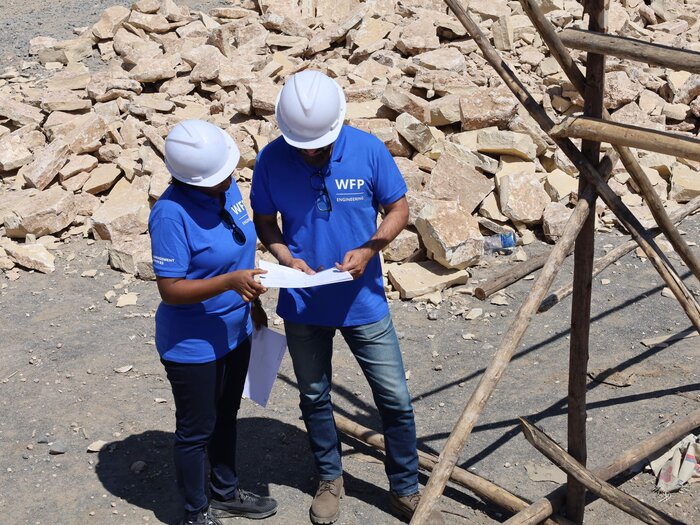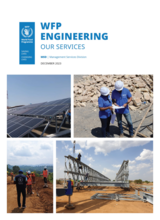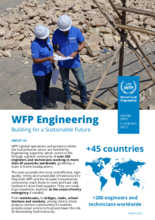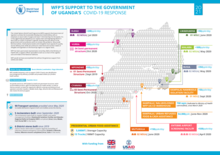Engineering
- OVER 200
- in-house engineers and technicians
- OVER 45
- countries worldwide with engineering presence
- OVER US$300 million
- worth of projects between 2018 & 2023
Infrastructure is a key component in the fight against hunger. The World Food Programme (WFP)’s ’Building for a Sustainable Future’ vision embodies a belief that bold infrastructure paves the way for reaching global humanitarian objectives and ensures a better future for the people we serve.
Our engineering work bridges the divide between humanitarian and development activities. Whether stemming from an emergency or the request of a government for technical assistance, an investment in infrastructure is an investment in a country’s recovery, resilience and long-term food security.
Globally, there are approximately 200 WFP engineers, architects and technicians working in more than 45 countries. These projects connect communities to markets, provide easier access to food and lower the risk of devastating food insecurity.
What we build
-
Access and logistics infrastructure
-
This includes building or rehabilitating roads, bridges, airstrips, shipping ports, food-storage facilities and humanitarian staging areas, among others. This ensures not only that food and non-food items are efficiently stored and distributed, but also that people are better connected to markets and other essential services.
-
Community infrastructure projects
-
From the construction of school kitchens to the implementation of irrigation systems, markets, bakeries and nutrition centres, WFP engineers build the foundations of thriving communities through small and medium-scale projects that address the unique challenges faced by vulnerable populations.
-
Safe and secure facilities
-
We rehabilitate and construct compounds, office facilities and secured guesthouses in complex environments for WFP and other UN workers.




